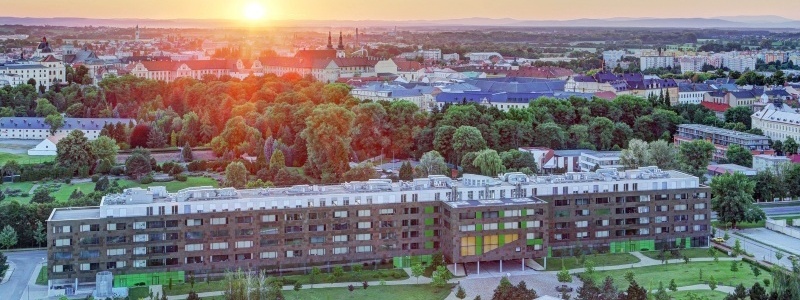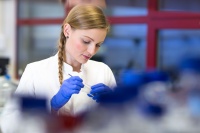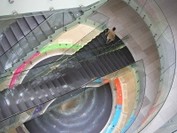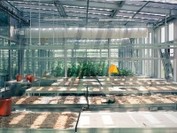About

Faculty of Science, Palacký University Olomouc is a research-oriented faculty. It offers a wide range of Bachelor, Follow-up Master, and Doctoral study programmes in Mathematics, Computer Science, Physics, Chemistry, Biology and Ecology, Earth Sciences, including programmes preparing future teachers of natural sciences.
Most faculty facilities including the dormitories and university cafeteria are located on a campus not far from the city centre. Biology study fields and scientific-research units are situated in Olomouc-Holice. Thanks to European funding and success in national grant competitions the faculty has managed to build modern facilities with state-of-the-art equipment. The faculty operates an interactive museum Fort Science and also a Botanical Garden.
For more information browse through the electronic version of current brochure of the Faculty of Science with overall information on study fields, major accomplishments in research, leading experts in science, statistics of enrolled students and graduates, and much more.
Statistical data
Total number of students: 4.081
Number of graduates in academic year 2021/2022: 699
Number of applications for academic year 2022/2023: 4.984
Enrolled students: 1.614
Number of study fields: 149
Total number of employees: 884, including 596 of academic staff and researchers
Average age of employees: 41




Major achievements
Faculty research staff is involved in implementation of a prestigious ERC grant project called Two-Dimensional Chemistry towards New Graphene Derivatives, the first one of its kind at Palacký University.
At the CHIRANAL 2018 January Conference, Karel Lemr received the Hanuš's medal, the highest award of the Czech Chemical Society for scientific achievements in chemical fields.
The research team from the Department of Optics of the Faculty of Science, Palacký University has been able to design a special detector, which is the first in the world to measure important quantum properties of light states without breaking them. The results of this unique experiment open new possibilities for detecting quantum states of photons and other quantum objects.
In November 2018, a plant geneticist Jaroslav Doležel received the main National Award of the Czech government - Česká hlava. In his work he focuses on the study of genetic information in plants, its structure and changes that accompanied the evolution of plants and the emergence of new species. He has also contributed to the decoding of the wheat or barley genome, which will help in breeding new varieties resistant to climate change, pests and diseases.
The prestigious Neuron Prize for Young Scientists in Physics was received by Lukáš Slodička from the Department of Optics of the Faculty of Science, who specializes in quantum properties of light.
Ondřej Kováč received one of the two grants from the Experientia Foundation with his research project, which focused on the development of a new type of effective antibiotics. He has thus increadsed a number of 15 excellent young scientists under the age of 35 in the field of organic, bioorganic and medicinal chemistry, who, thanks to the foundation's support, will travel for a one-year internship to a top scientific workplace. Ondřej Kováč is currently working at the Department of Organic Chemistry of the UP Faculty of Science, where he is continuing a project dedicated to the total synthesis of the new antibiotic Kibdelomycin.
The Highly Cited Researchers 2023 list of almost 7,000 most cited scientists from more than 60 countries also includes the name of plant hormone analysis expert Ondřej Novák from the Laboratory of Growth Regulators, which is a joint workplace of the Faculty of Science of Palacký University and the Institute of Experimental Botany of the Czech Academy of Sciences.
Professor Radim Filip from the Department of Optics received the František Běhounek Award for 2022 at the Wallenstein Palace of the Senate of the Parliament of the Czech Republic. This prestigious award is intended for scientists who have contributed to spreading the reputation of the Czech Republic in European research and development.
Faculty employees are very successful in obtaining national, European and American patents and utility models.